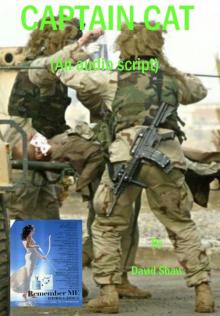- Home
- David Shaw
The Rockets' Red Glare Page 3
The Rockets' Red Glare Read online
Page 3
combatant in the Second World War. Seventeen seconds later the rockets began falling on and around the German positions on the crestline. Trees were shredded into splinters, half tracks blew up like boxes of fireworks, the unprotected gun crews disappeared into the clouds of pounded dirt which partially buried their dismembered remains. Of the Divisional commander supervising their fighting, nothing was ever definitely identified but a ripped and scorched gold braided hat with the name 'Erwin Rommel' neatly printed inside it. Those few Germans who were still capable of it ran like hares, terrified out of their wits.
Two of the rockets had also found British targets. One Matilda suffered a direct hit and had its turret blown off, another Tulip landed close enough to a British tank to shatter a track. But since both of the tanks had already been knocked out by 88's, this was little loss. The crews of the surviving Matildas finally recovered their wits and moved forward again. The Tulip crews worked in a frenzy to reload their launchers, ignoring the danger of counter fire.
From the Sharpshooter the pilot and the observer watched with glee as the soft vehicles belonging to 7th Panzer and the SS tried to flee back towards the Fatherland as fast as their wheels could turn. All they achieved was to create a massive traffic jam on which another salvo of rockets landed. Along the rest of the front the Germans might be winning hands down but at Arras, today, they'd had the snot kicked right out of them.
Of course it couldn't last. The Jerries would soon recover and become their usual truculent selves. The Luftwaffe was already on the way to help retrieve the situation. There was still no possibility of any co-ordinated action with a French Army that was showing all the agility of a dinosaur trapped in a tar pit. But at least the Panzer crews on the coast had been turned around and were racing back to Arras to deal with the five British divisions the German staff seriously believed were responsible for the pounding Rommel's division had been given. A belief mixed in with panic stricken reports of some new kind of a secret weapon which was destructive beyond belief. There was going to be no sickle sweep behind the British lines now, nor for several days at least, and Gort could withdraw his divisions towards Dunkirk with little fear of being taken in the flank.
The Tulip battery became Army HQ troops, to be used as Gort himself directed, firing occasional salvos in widely dispersed positions to bluff the Germans into thinking the British had many rocket batteries instead of only one. And if the British were being forced out, at least they could go with the consolation that the German army was suddenly treating them with a great deal much caution and respect after the Arras attack.
As for the Germans officers picking over the wreckage on the Arras battlefield, they had ample time to reflect on what a British beach crowded with invading troops might look like after a similar bombardment.
The End
Author's note: technical details are taken from the actual "Land Mattress;" rocket projectors
first used in November 1944. All the information about the Hordern-Richmond Autoplane is also factual.

 The Rockets' Red Glare
The Rockets' Red Glare Captain Cat
Captain Cat